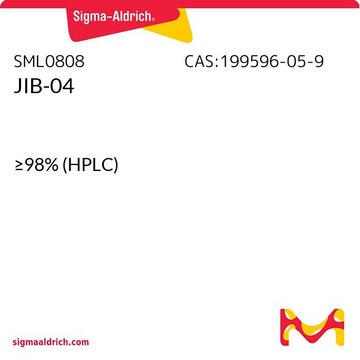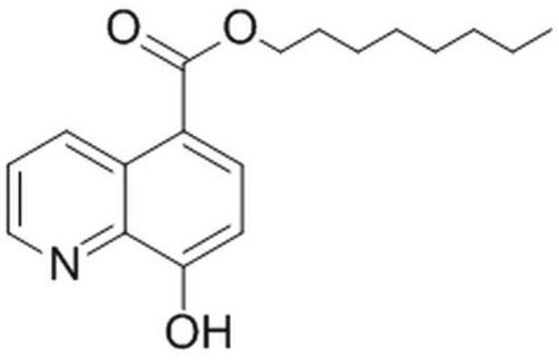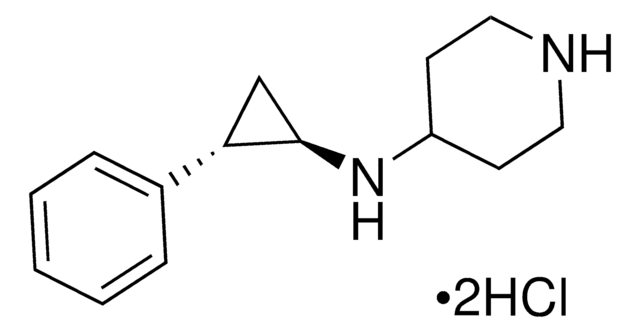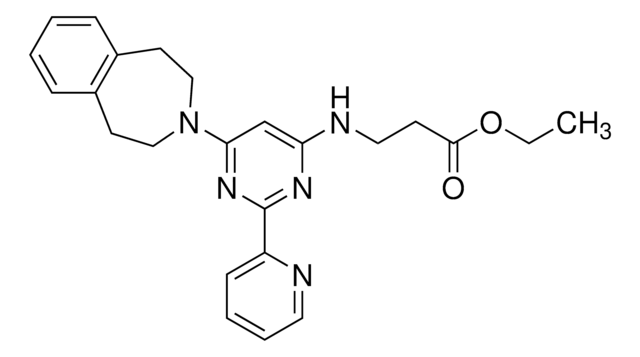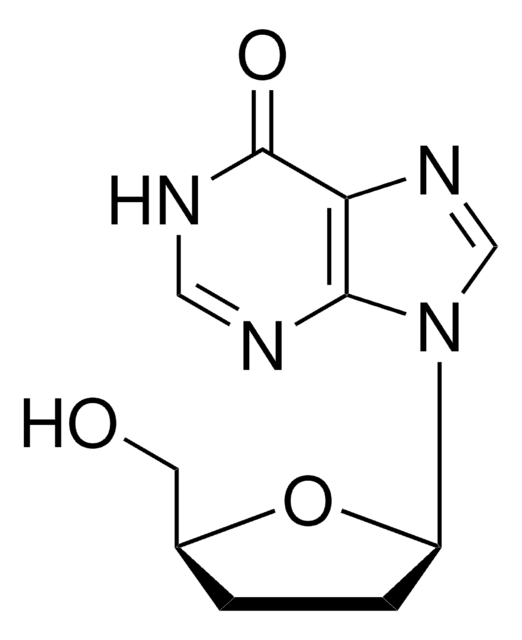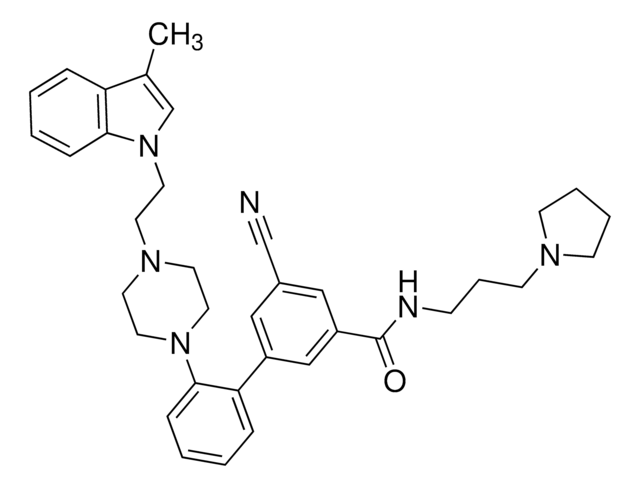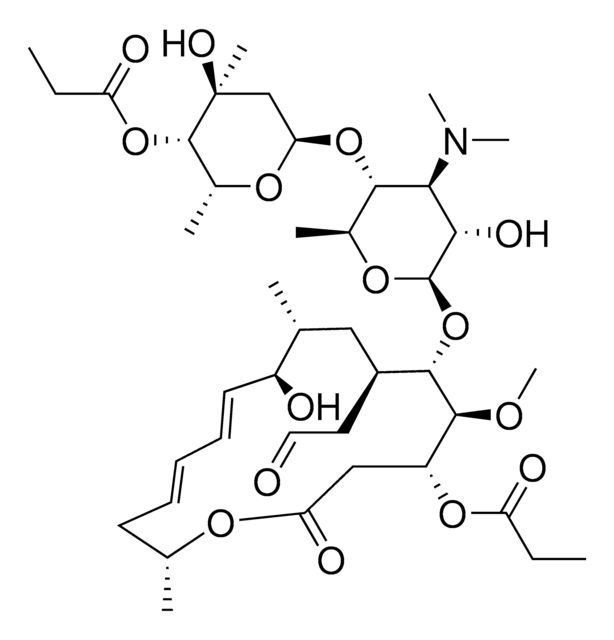5.31662
JHDM Inhibitor VIII, SD70
Sinónimos:
JHDM Inhibitor VIII, SD70, N-(Furan-2-yl(8-hydroxyquinolin-7-yl)methyl)isobutyramide, N-(2-Furyl(8-hydroxy-7-quinolinyl)methyl)-2-methylpropanamide, Histone Lysine Demethylase Inhibitor XV, SD-70
About This Item
Productos recomendados
Ensayo
≥97% (HPLC)
Nivel de calidad
Formulario
powder
fabricante / nombre comercial
Calbiochem®
condiciones de almacenamiento
OK to freeze
protect from light
color
off-white
solubilidad
DMSO: 50 mg/mL
temp. de almacenamiento
2-8°C
cadena SMILES
N(C(c3[o]ccc3)c1c(c2ncccc2cc1)O)C(=O)C(C)C
Clave InChI
PBZYAPZLINAHET-UHFFFAOYSA-N
Descripción general
Please note that the molecular weight for this compound is batch-specific due to variable water content.
Acciones bioquímicas o fisiológicas
JMJD2C/KDM4C
Envase
Advertencia
Reconstitución
Otras notas
Información legal
Código de clase de almacenamiento
11 - Combustible Solids
Clase de riesgo para el agua (WGK)
WGK 3
Punto de inflamabilidad (°F)
Not applicable
Punto de inflamabilidad (°C)
Not applicable
Certificados de análisis (COA)
Busque Certificados de análisis (COA) introduciendo el número de lote del producto. Los números de lote se encuentran en la etiqueta del producto después de las palabras «Lot» o «Batch»
¿Ya tiene este producto?
Encuentre la documentación para los productos que ha comprado recientemente en la Biblioteca de documentos.
Nuestro equipo de científicos tiene experiencia en todas las áreas de investigación: Ciencias de la vida, Ciencia de los materiales, Síntesis química, Cromatografía, Analítica y muchas otras.
Póngase en contacto con el Servicio técnico